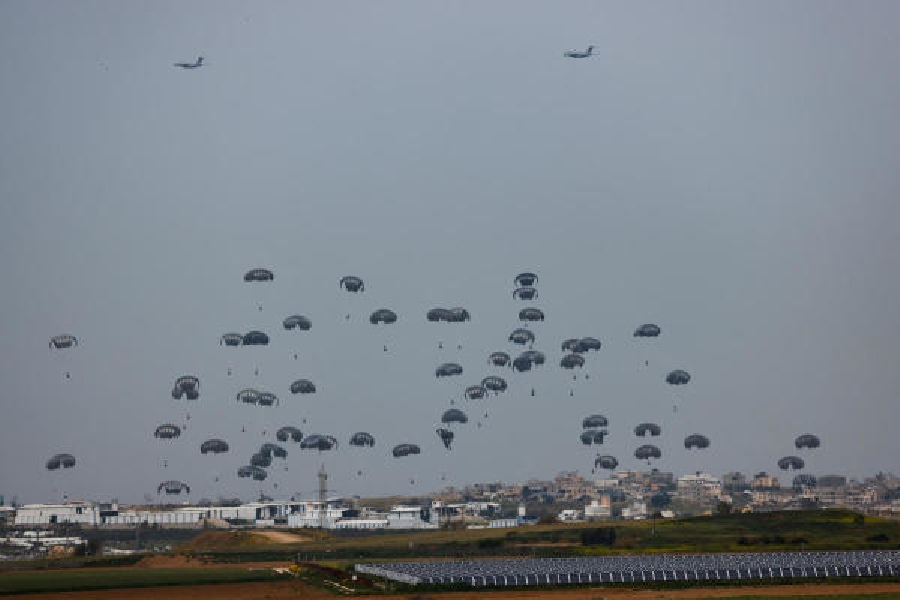With the humanitarian crisis worsening in the Gaza Strip, the US this month started airdropping food and water into the enclave.
This weekend, a maritime shipment of aid reached northern Gaza’s shores, the first to do so in nearly two decades. Another batch of essentials is expected to soon set sail for Gaza from Cyprus.
Over the next few weeks, the US is planning to build a floating dock off Gaza’s shores that the White House has said could eventually help two million meals arrive in Gaza each day.
All of these efforts are designed to get more aid into Gaza, where the United Nations says severe hunger and malnutrition are alarmingly rampant. But diversifying the methods of delivery has not curtailed widespread malnutrition, experts and humanitarian groups say. While those efforts are welcome, they say the best way to stave off a famine is to broker a cease-fire. Talks are expected to resume in the coming days.
“We cannot stack up aid to the level that is needed, and we cannot keep it safe for both people delivering it and the people receiving it as long as there’s still an active war going on,” said Sarah Schiffling, an expert on humanitarian logistics and supply chains at the Hanken School of Economics in Finland.
As long as war endures, though, the main method for delivering aid should be over land, Dr. Schiffling said, because Gaza already has the infrastructure needed in place. Other mechanisms for transporting aid into Gaza by air or sea are “nice to have,” she added, but they are not likely to be as effective in addressing the dire hunger crisis there.
For instance, the 200-tonne shipment — containing rice, flour, lentils and canned tuna, beef and chicken supplied by the charity World Central Kitchen — that reached Gaza this weekend was equivalent of what roughly 10 trucks could carry. In comparison, around 150 trucks are entering Gaza each day, which is less than a third of what was entering daily before the war, according to data from the main United Nations aid agency that serves Palestinians in Gaza, known as UNRWA.
The US military, in partnership with the Jordanian Air Force, made an airdrop on Saturday that included about eight tonnes of food — less than half of what one truck can hold.
Juliette Touma, the director of communications at UNRWA, agreed. She said that while the arrival of additional aid by sea or air would undoubtedly help Palestinians, it serves as a Band-Aid so that a “crisis does not turn into a catastrophe.”










